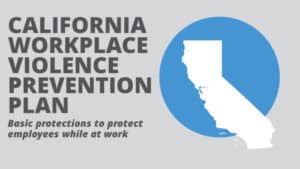Last week’s question was posed by a doctor, who wanted to remain anonymous, who asked what her/his rights were in a situation where they were working around COVID-19 patients, were told to re-use their personal protection equipment (PPE) such as masks, goggles and gowns, in violation of hospital policy.
The reader indicated that they were aware that PPE had been diverted from the treatment floors for the personal use of administrators and, she/he believed, for their families. The reader stated that she/he voiced concerns for patient safety, and her/his safety, caused by the reuse of PPE. Upon expressing those concerns the reader was told that they should, in essence, “mind their own business if they know what’s good for them.” Last week, I addressed the issue of an employer’s responsibility to provide a safe workplace with the required and appropriate safety gear and equipment. This week I am addressing the issue of a physician’s rights to express concerns about patient care without fear of retaliation.
A doctor who voices her concerns about inadequate patient care and safety is supposed to be protected against retaliation by California Business and Professions Code Section 2056. It is the public policy of the State of California that a physician is to be encouraged to advocate for medically appropriate health care for his or her patients. To advocate for “medically appropriate health care” includes protesting a decision, policy, or practice that the physician reasonably believes impairs the physician’s ability to provide medically appropriate health care to his or her patients.
Any person who renders a decision to terminate or penalize a physician employee or contractor for advocating for medically appropriate health care is in violation of the law. Section 2056 states: “No person shall terminate, retaliate against, or otherwise penalize a physician and surgeon for that advocacy, nor shall any person prohibit, restrict, or in any way discourage a physician and surgeon from communicating to patient information in furtherance of medically appropriate health care.” So the law goes beyond just advocating for patient care internally, it could also protect a physician who brings those concerns to the attention of the patient, outside regulators, and even the press.
When a physician is retaliated against they can bring a civil action for retaliation and/or termination in violation of public policy, a whistleblower complaint under the Labor Code, and several other common law causes of action. A prevailing physician could receive both past and future economic losses, non-economic damages for emotional distress, shame, humiliation, etc., and, in some cases where malice, fraud or oppression can be demonstrated, punitive damages to deter the individuals or facility from repeating the behavior.
When analyzing what is “appropriate patient care” the determination must factor in the locality and other circumstances under which treatment was given. For example in San Francisco, it may be the standard of care to do an MRI with contrast (radioactive dye). In a very rural urgent care facility, with no MRI, the standard of care would be different.
The same is true with COVID-19. Care and treatment of COVID-19 patients will have to be examined under the conditions which existed at the time of the care. There are circumstances wherein there may not be enough ventilators for everyone who needs one to get one. A doctor may be forced to “triage” the patients and determine who is more likely to survive and withhold treatment from a patient who is more likely to die. In your case, had there truly been a shortage of PPE, as we see across the country, the fact that PPE would be changed between patient visits in pre-coronavirus times, does not set the standard in coronavirus-time. Your question, however, involves members of the administration taking PPE for themselves and their families thereby diverting them from both employee safety and patient care. As I said last week, California Labor Code Section 6406 makes it illegal for anyone to remove, displace, damage, destroy or carry off any safety device, safeguard, notice, or warning, furnished for use in any employment or place of employment. If they are diverting safety equipment from you and patients, for their own personal use, it should not be justified because of COVID-19. In my eyes, it makes it that conduct much more despicable.
You should document all important facts concerning the inadequate patient care, who is taking the PPE home, and any claims or complaints you make, to whom, when, and who witnessed it. You want witnesses or, preferably, a date and time stamped (e-mail) contemporaneous writing. I would suggest that you examine your personnel folder before making a complaint so that if you later see backdated documents, you can identify them. If you feel strongly enough about what’s happening and are principled enough to take action, you should file a written complaint with the Medical Board.
Be aware, hospitals wield a lot of power. Doctors, hospitals and practice groups, will often terminate a doctor who advocates for patient care and then claim it was a result of a physician’s clinical deficiencies, or that they were psychologically unstable. I have handled three such cases. The hospitals’ conduct was despicable. Fortunately, on the whole, there are many more good doctors than that are unscrupulous ones and, if you properly document and escalate your complaint, hopefully proper action will be taken. If you are retaliated against then get yourself a good trial lawyer as the hospitals have legal specialists who do nothing but fight to cover up wrongdoing.










